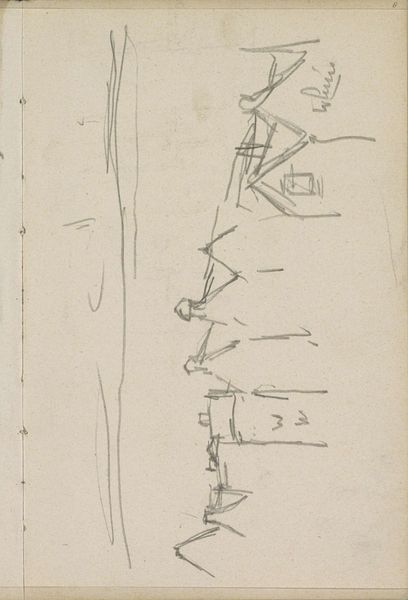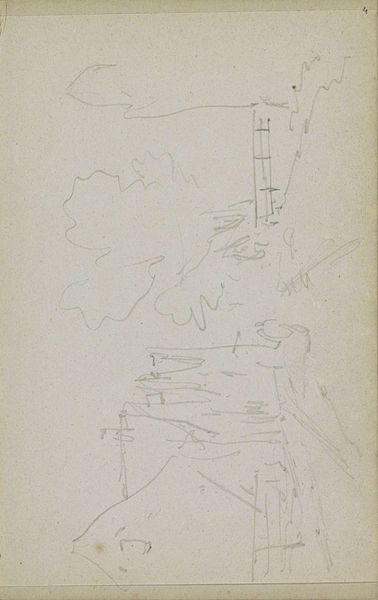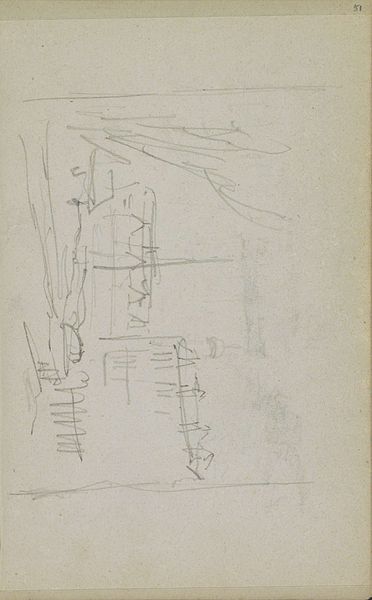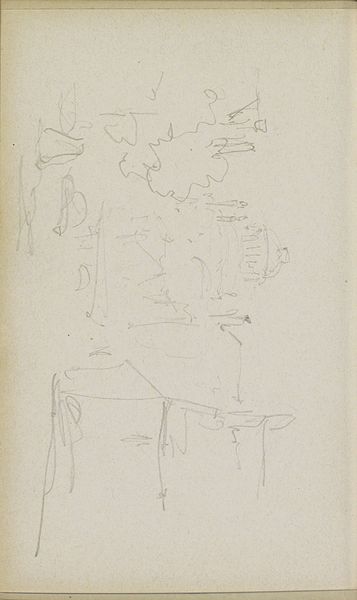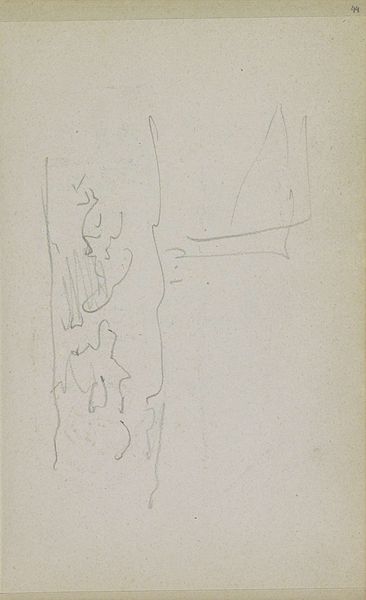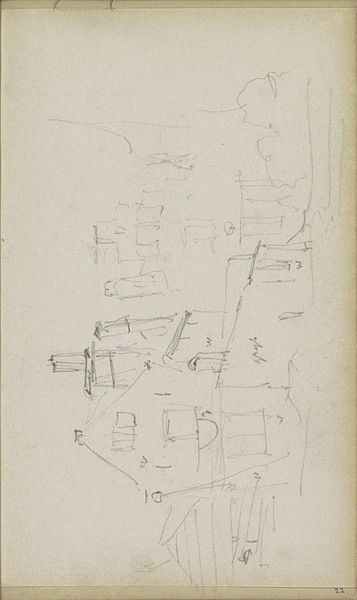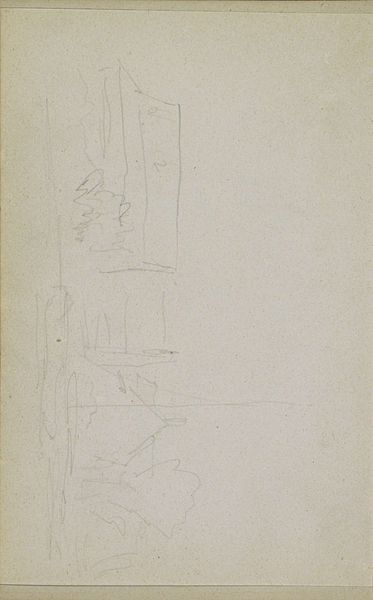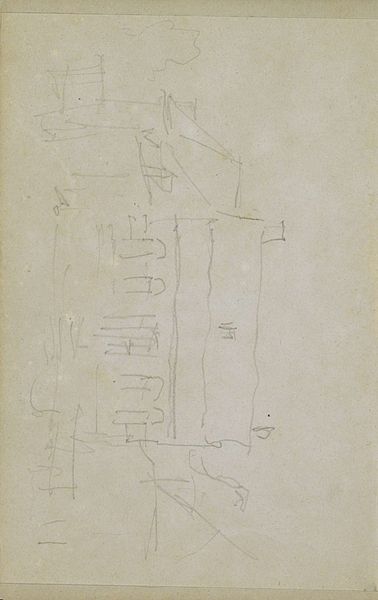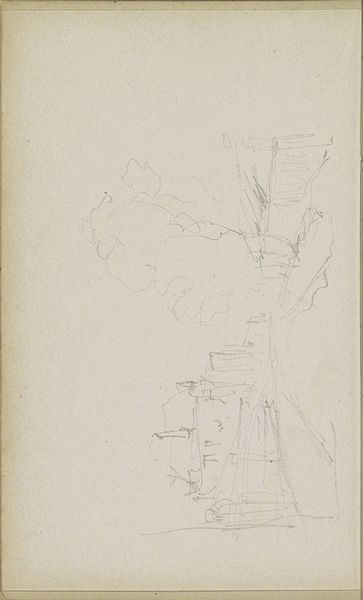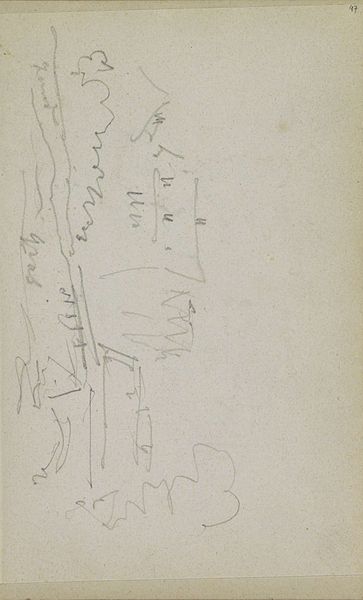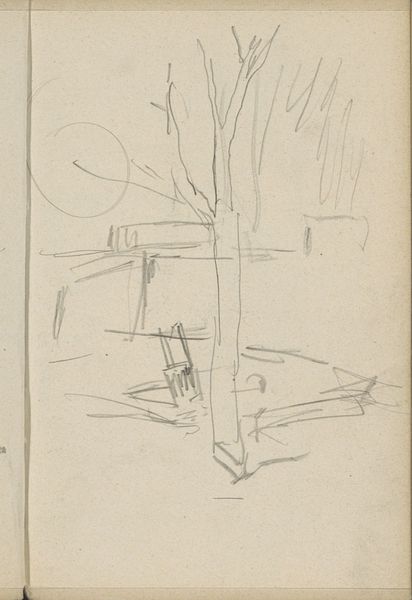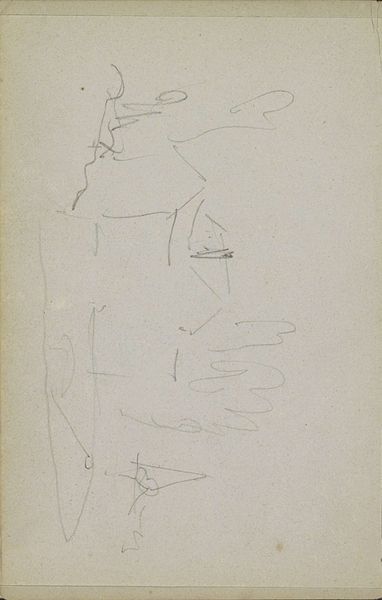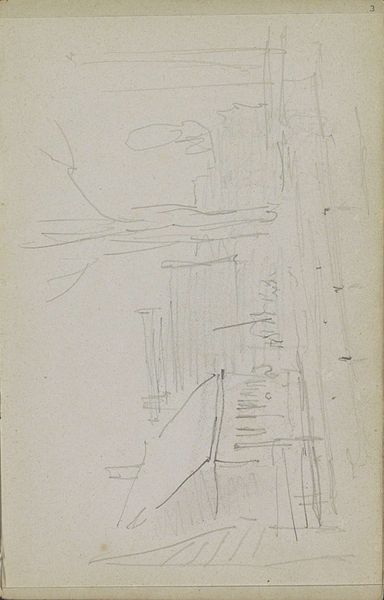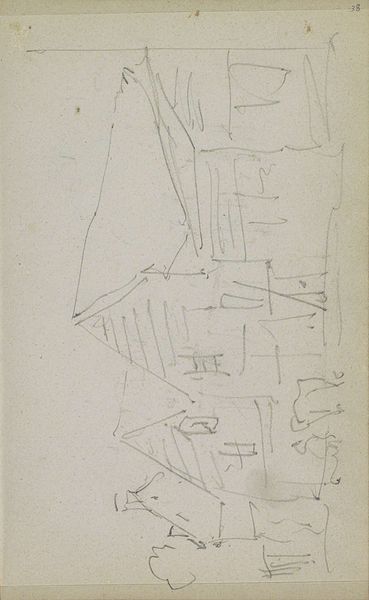
drawing, pencil, graphite
#
drawing
#
amateur sketch
#
light pencil work
#
sketched
#
incomplete sketchy
#
landscape
#
personal sketchbook
#
idea generation sketch
#
sketchwork
#
pencil
#
line
#
graphite
#
sketchbook drawing
#
sketchbook art
#
initial sketch
Copyright: Rijks Museum: Open Domain
Editor: So, here we have "Gezicht op een gebouw in een landschap," a pencil drawing by Adrianus Eversen, created sometime between 1828 and 1897. It has a very tentative, almost dreamlike quality to it, doesn't it? What do you see in this piece, in terms of its cultural implications? Curator: What I find compelling here is the immediacy and intimacy. Eversen offers a raw glimpse into the artistic process. This "sketchbook art," as the tags call it, is more than just an exercise in skill. How does this incomplete, suggestive quality challenge conventional notions of "finished" art, and what does it tell us about who has traditionally held power in defining those standards? Editor: That’s interesting. It's like we are looking at the bones of an idea. Curator: Precisely. Think about the rise of Realism during this period. While official academic art prized polish and idealized representations, a sketch like this acknowledges the artist's subjective perspective and the messy reality of observation. Consider who had access to the "leisure" of artistic pursuit, especially landscape study. Whose perspective do we get to see in these sketches and whose perspective is traditionally excluded? Editor: I hadn't considered the socio-economic factors at play. So this sketch almost represents a form of... rebellion? Curator: Perhaps a quiet subversion. Eversen’s sketch is very much a product of its time, yet in its refusal to conform to established norms, it quietly questions them. It’s a form of visual note-taking that stands in contrast to highly-rendered landscapes of the time, revealing an underlying social and economic context. What feelings are evoked when looking at its free, seemingly unfinished nature? Does that imply an honesty that polished works tend to conceal? Editor: Definitely. It makes you wonder what else was in his sketchbook and what stories those other sketches could tell. Curator: Exactly! It prompts us to consider whose stories have been deemed worthy of preservation, and what the art world loses when certain voices are systematically silenced. Editor: This makes me think about art in an entirely different light! Thanks.
Comments
No comments
Be the first to comment and join the conversation on the ultimate creative platform.
